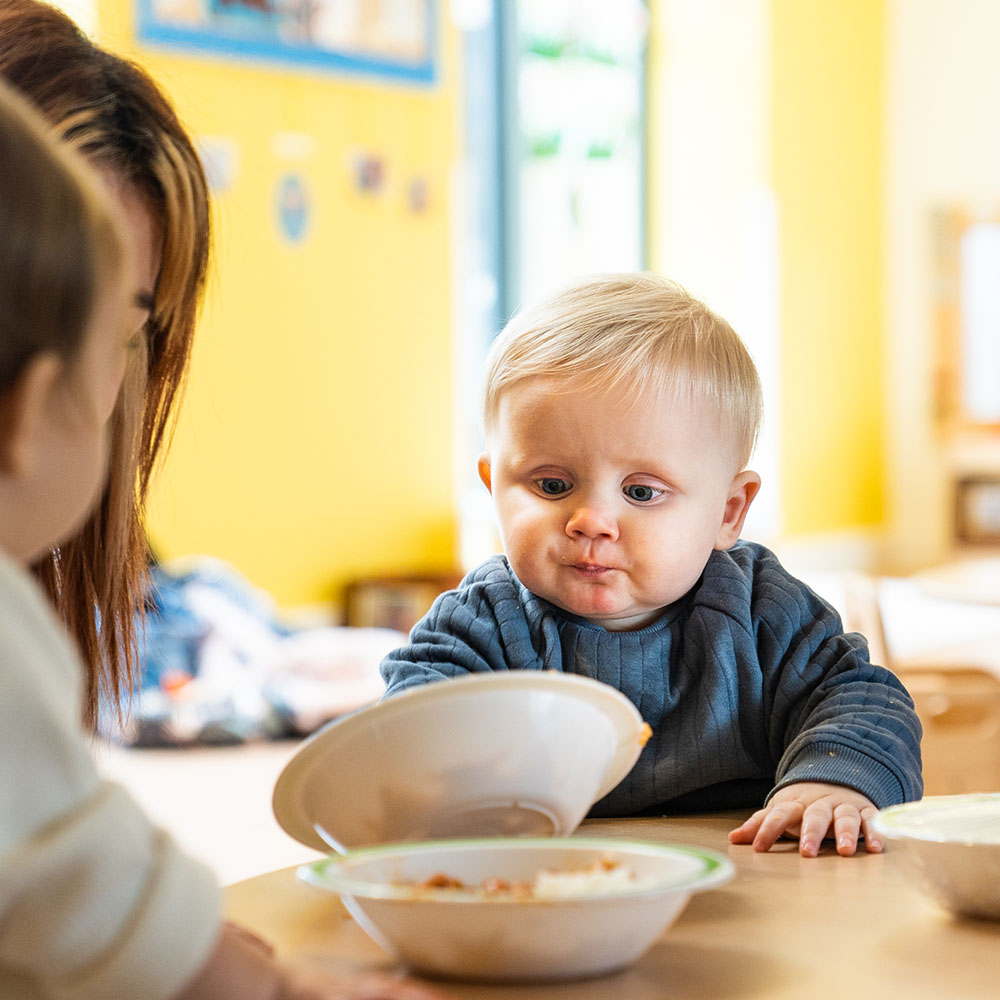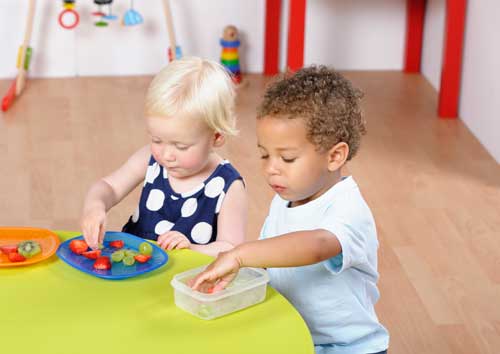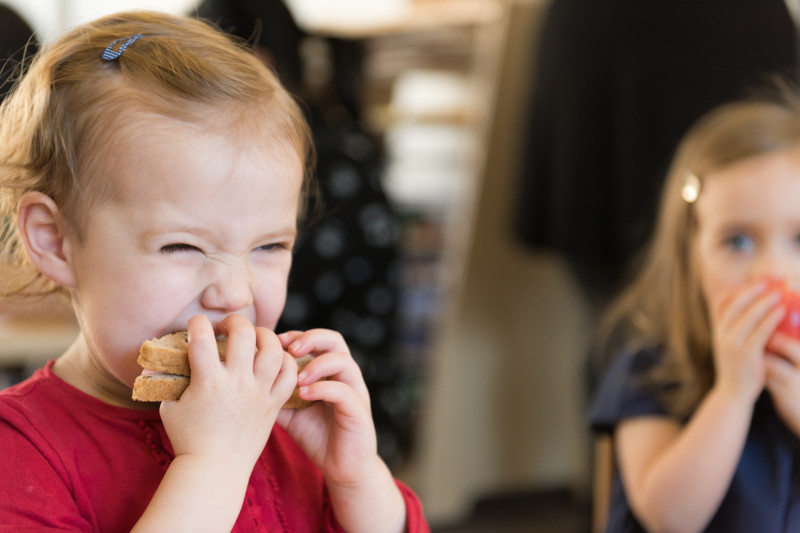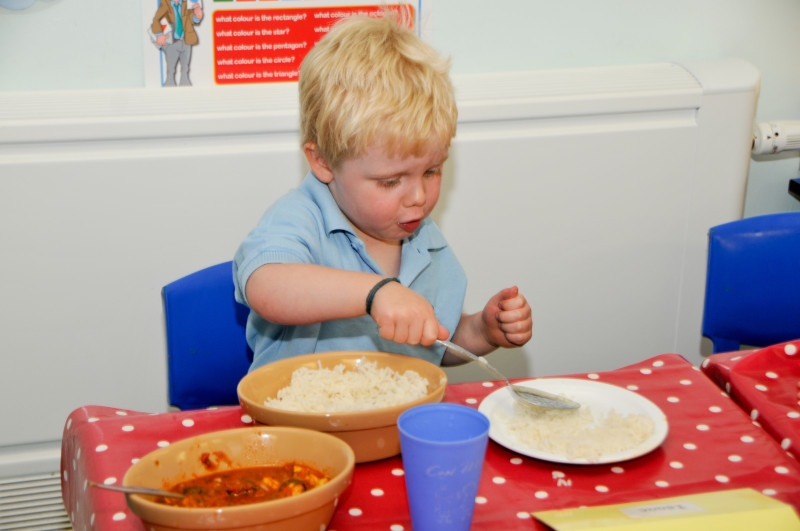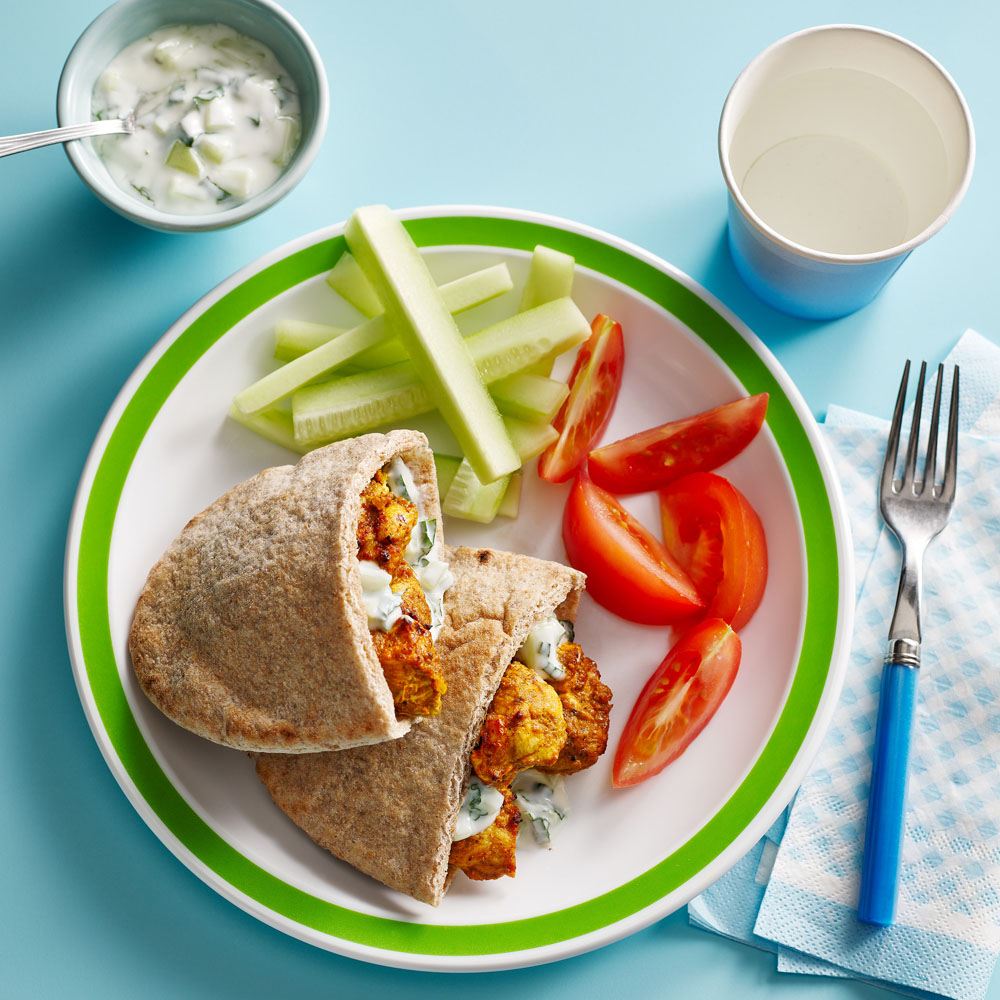
Nutrition Guidelines
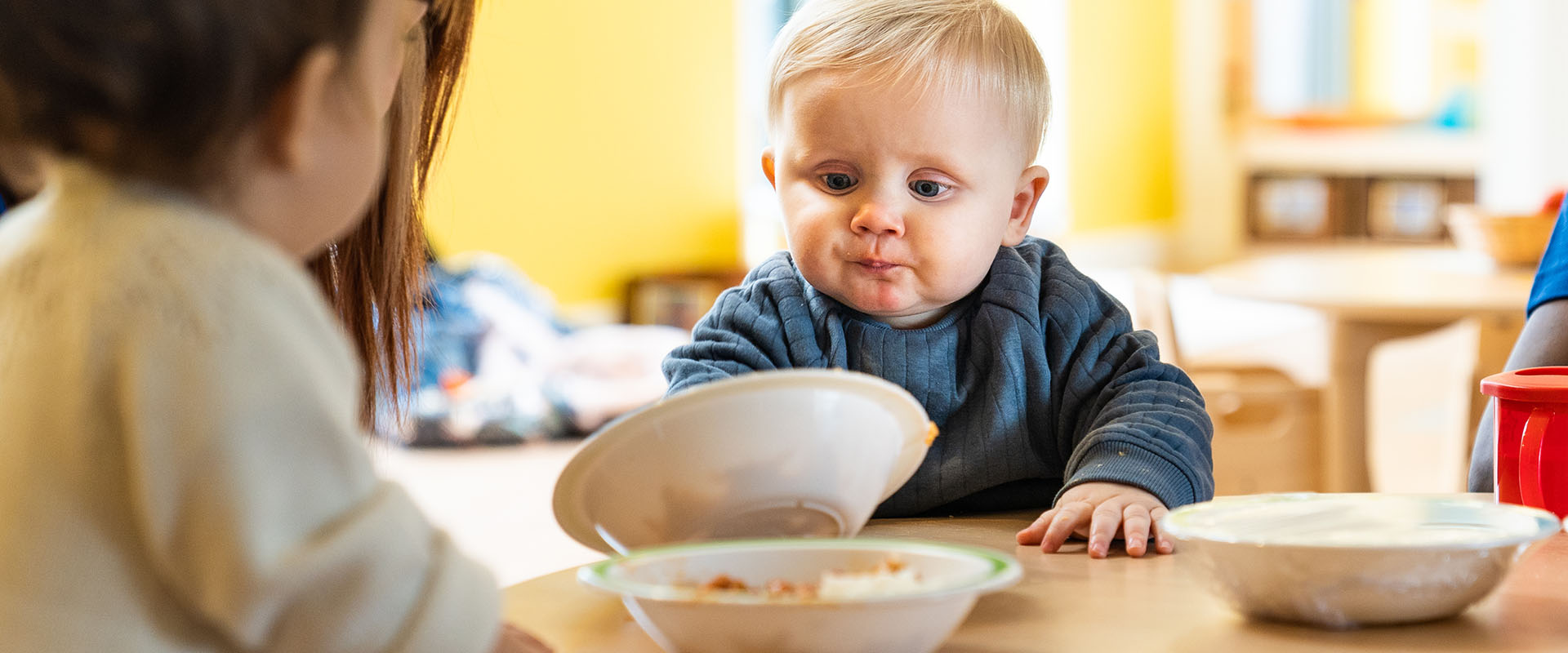
Why Nutrition Matters
The food children eat is crucial for the healthy development of their rapidly growing bodies and even affects their focus and cognitive skills. By contrast, poor nutrition during infancy and early years can be linked to heart disease, diabetes, obesity and high blood pressure in later life.
The way young children relate to food can also be a huge influence on their eating habits as they grow up, so it’s important to teach and encourage good practices and foster a healthy relationship with food from an early age.
At Bright Horizons, our menus are carefully chosen and expertly planned by our trained chefs, to ensure that every child receives a balanced and nutritious diet. Our daily menu provides each different food group in the recommended amounts and portion sizes, in line with the government guidelines set out in the Action for Children guidance.
We closely follow the guidance of First Steps Nutrition Trust for children under one year old. Read their guide, Eating well: the first year, for further information.
Children’s Nutritional Needs

Everyone needs the same types of nutrients — such as vitamins, minerals, carbohydrates, protein and fat. Nutrition for children is based on similar principles as nutrition for adults, but it is important to understand that it’s not the same.
Children need different amounts of specific nutrients at different ages. For example, a low-fat, high fibre diet is not appropriate for young children, particularly children under two, as it may not provide enough energy, fat, iron or zinc, and would be too high in fibre.
Good Nutrition is Essential for:
- Maintaining a healthy weight
- Good oral hygiene
- Reducing the risk of childhood obesity
- Healthy body function and growth
- Developing good eating habits
- Reducing infections and childhood illnesses
- Promoting wellbeing and positive mental health
- A nutritious and varied diet for children
Balancing Food Groups for Children’s Nutrition:
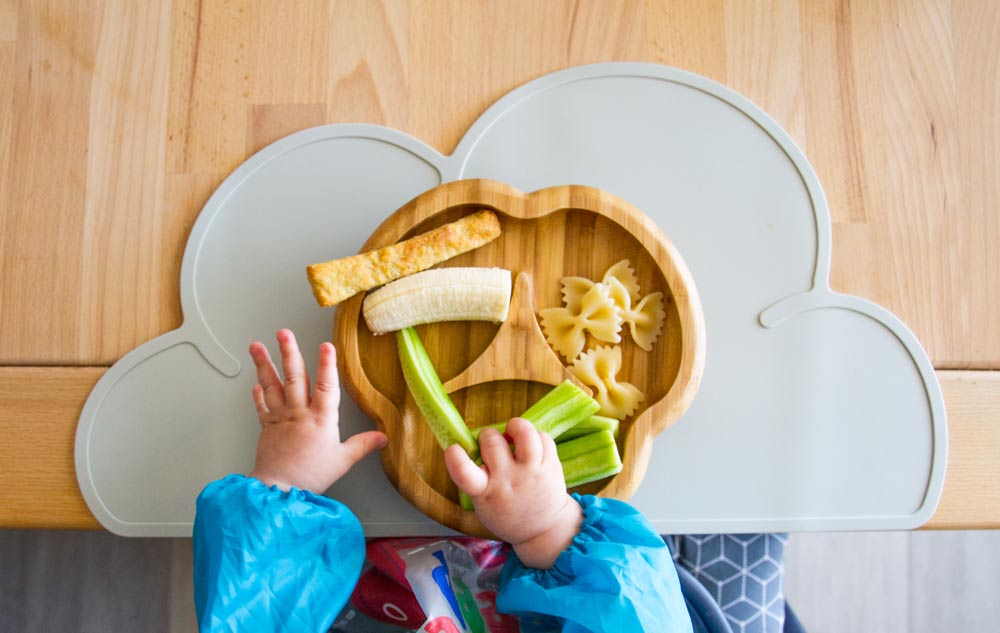
Children’s nutritional needs should be met through three balanced meals, and two snacks a day containing food from five main food groups, which are:
Fruit and Vegetables
Ideally children should eat at least 5 portions of fruit and vegetables a day. The portion size will vary dependent on age, size and how active they are.
- As a guide, one portion of fruit or vegetables will roughly fit into the palm of a child’s hand.
Carbohydrates (potatoes, bread, pasta, rice, cereals and other starchy carbohydrates)
Children need carbohydrate in each meal. However, children under two may struggle to digest wholegrain varieties.
- Too much fibre can fill them up very quickly, and prevent absorption of other important minerals, such as calcium and iron.
Protein (meat, fish, pulses, beans)
Protein is essential for a number of important functions including growth, brain development and the maintenance of strong, healthy bones. Children also need essential amino acids, which are mainly found in animal products.
Dairy (milk, cheese, yoghurt and dairy alternatives such as soya products)
Dairy foods including milk, yoghurt and cheese are an essential source of calcium and iodine in a child’s diet. In addition to providing vitamins A, D and B12.
Fats and Oils (butter, margarine, olive oil/sunflower oil, fish oil)
Children do need some fats to grow and develop. However, too much fat is not recommended as it can lead to weight gain and obesity.
Butter, spreads and oils add to taste, texture and enjoyment of food and are a source of concentrated energy for young, active children. They are also needed to help young bodies absorb vitamins including A, D, E and K.
Sugar and Salt
Soft drinks, cakes, biscuits, sugary pastries and desserts often contain poor quality fats as well as salt. Children can eat these foods in moderation as part of a healthy, balanced diet, especially if they are being very active and burning lots of energy. However, the over-consumption of foods and snacks high in added sugar, fat and salt is recognised as one of the main contributing factors to high obesity rates.
Daily Balance
The meals at our nurseries are prepared so that, cumulatively, they provide the right mix of food groups daily – so if a small portion of cake was served one day, for example, the nutritional value of the main meal would complement the inclusion of cake.
FInd out more

